Iron, an essential mineral in the human body, plays many vital roles necessary to a healthy life. Let’s learn more about iron and its special importance for those who are undergoing or have undergone bariatric surgery.
The role of Iron in the body
Because of its various functions, humans cannot live without an adequate iron intake. Some of iron’s important tasks in the body include:
- DNA synthesis
- Oxygen transport throughout the body
- Being a primary component in red blood cells, known as heme
- Cell growth and division
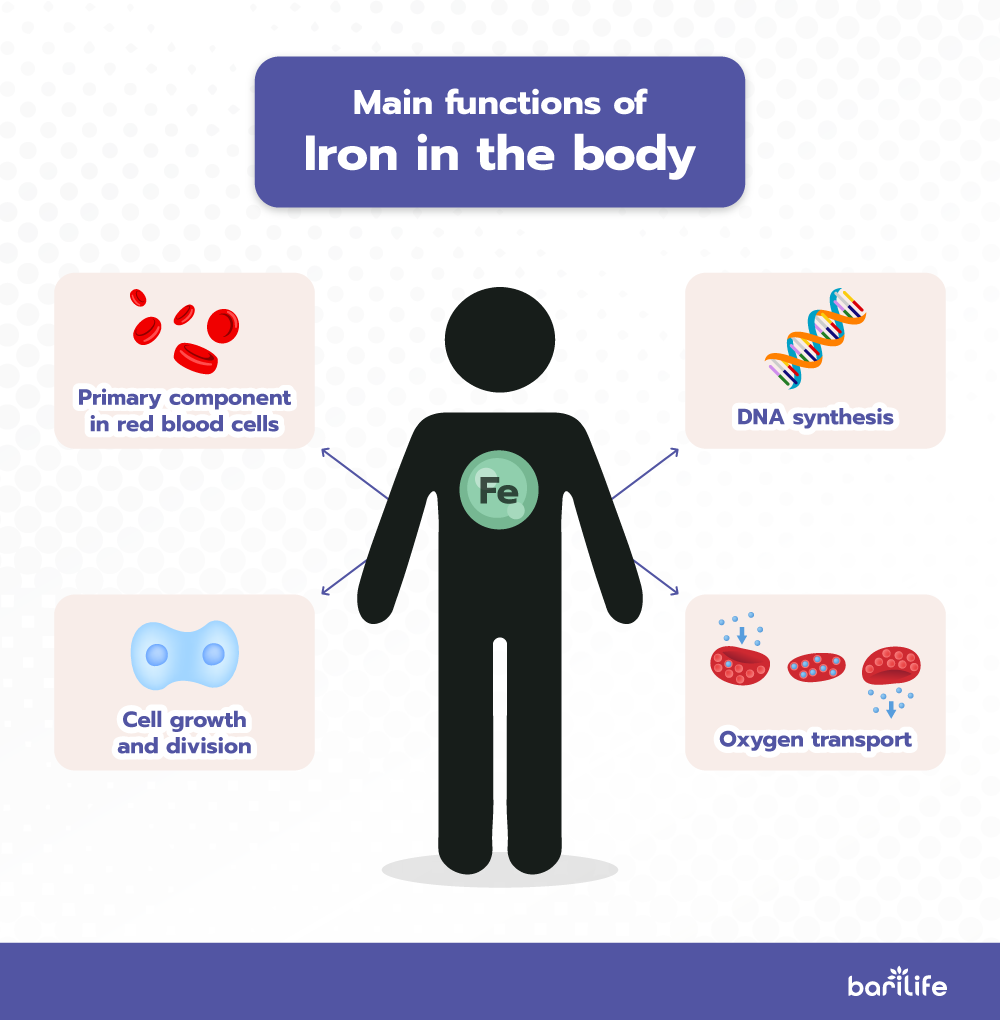
Iron is a trace mineral that is taken in through the diet, utilized, and stored. Although a crucial mineral to ensure you’re getting enough of, it is possible to have too much of a good thing. The body requires a narrow amount of iron, and too little or too much can cause dysfunction.
Too much iron, also known as iron overload or iron toxicity, can cause:
- Organ damage
- Nervous system damage
- Plaque build up in the arteries
- Cancer
- Diabetes
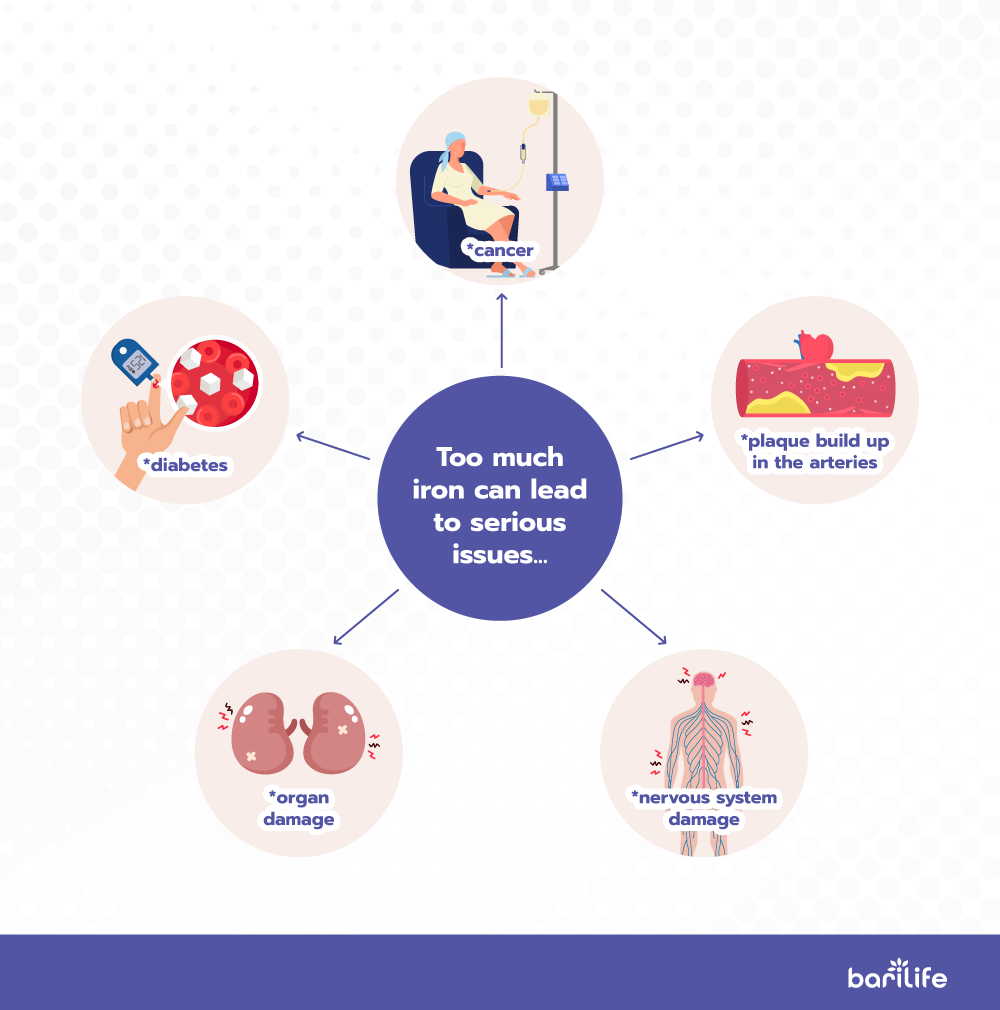
However, more common than iron overload is iron deficiency. This occurs when the individual either doesn’t consume enough iron or loses too much iron in various ways. More on this in a bit!
Eating a diet full of iron-rich foods is important to keep iron levels where they should be. Foods rich in iron include:
- Meats
- Chicken
- Pork
- Fish
- Tofu
- Legumes
- Whole grains
- Dark leafy greens
- Nuts and seeds such as pistachios and sesame seeds
- Fruits such as strawberries and kiwi
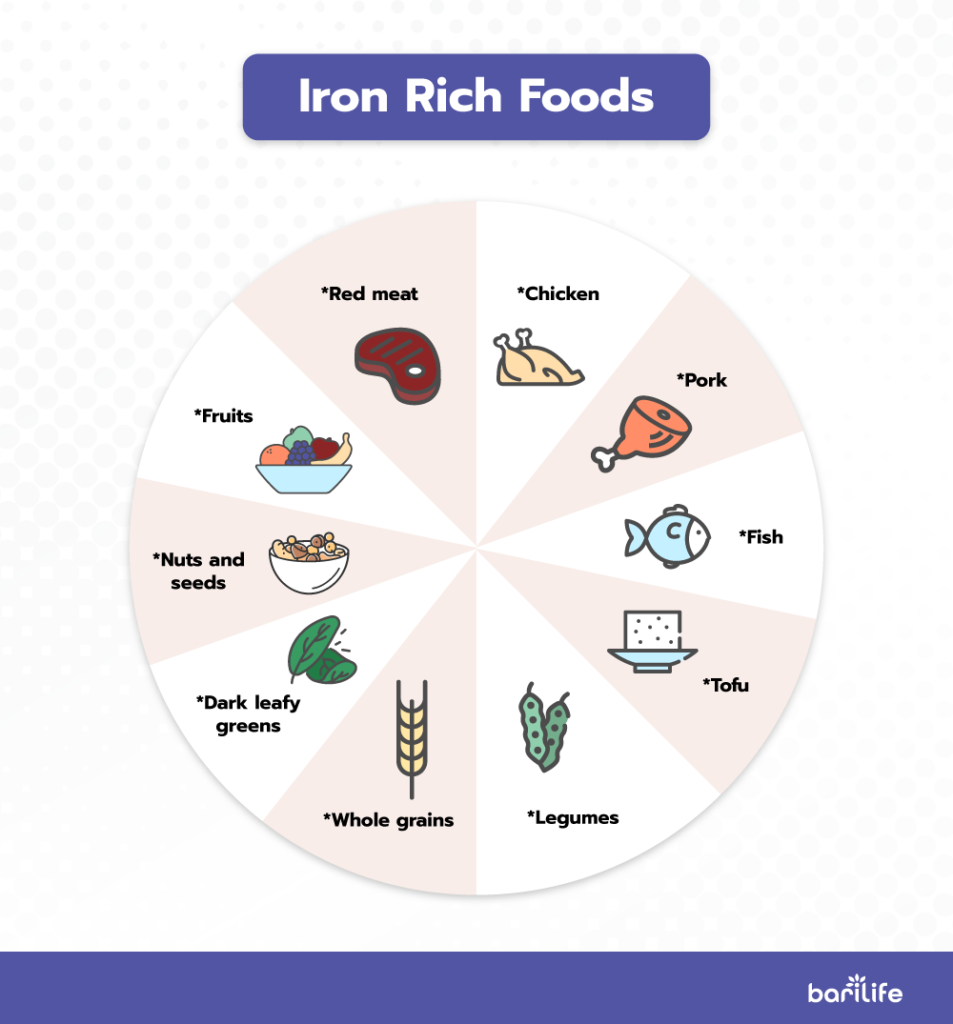
However, for those that have undergone bariatric surgery, eating foods with a high iron content usually isn’t enough to meet iron needs. A multivitamin including iron or a stand-alone iron supplement, if needed, is also a great way to guarantee you are meeting your needs for iron.
What are the ASMBS guidelines on Iron after bariatric surgery?
With its vast research database and expertise, the American Society for Metabolic and Bariatric Surgery (ASMBS) sets the standard for the dietary needs of individuals that have undergone or will be undergoing bariatric surgery.
Because iron is so tightly regulated in the body, there are more precise recommendations based on the individual and their circumstance:
- Low-risk men with no history of anemia should supplement with 18mg iron daily in a multivitamin
- Menstruating women and those patients that have undergone gastric bypass, gastric sleeve, or biliopancreatic diversion with duodenal switch should supplement with 45-60mg of iron daily

Signs, symptoms, and complications that can arise from becoming deficient
Anemia affects one-quarter of the world’s population, with iron deficiency being the main cause. Iron deficiency can lead to cells not being able to store and transport oxygen around the body. That is, the oxygen from the air we breathe cannot be used effectively in the body.
This decrease in oxygen transport can lead to an array of symptoms such as:
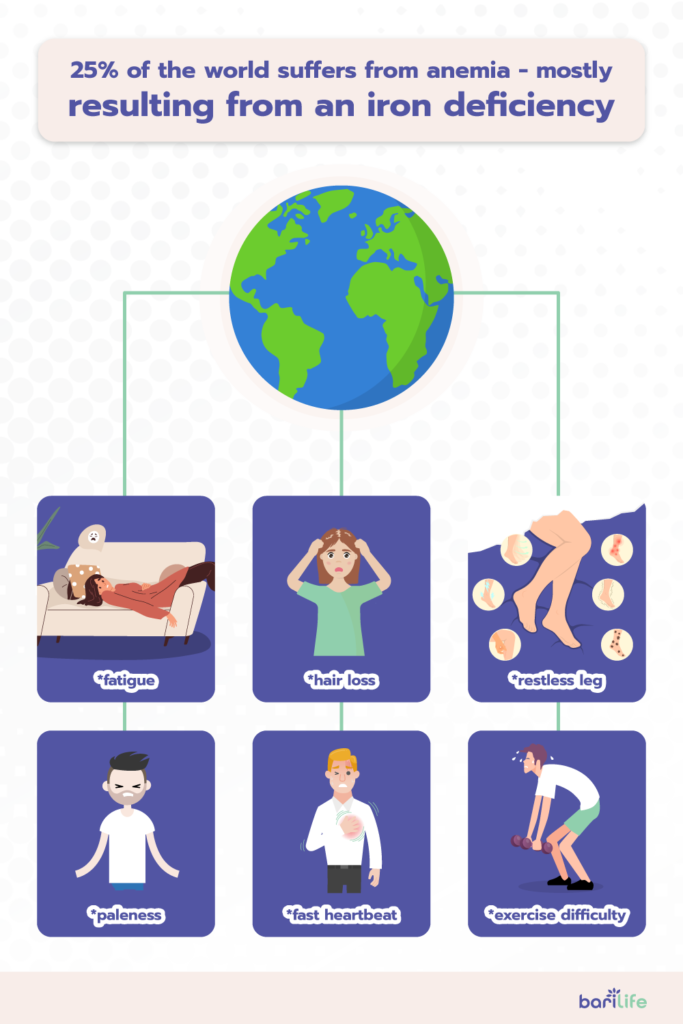
Beyond the symptoms, having iron deficiency puts you more at risk for:
- Infections
- Heart problems
- Depression
- Pregnancy complications
- Delayed development in children
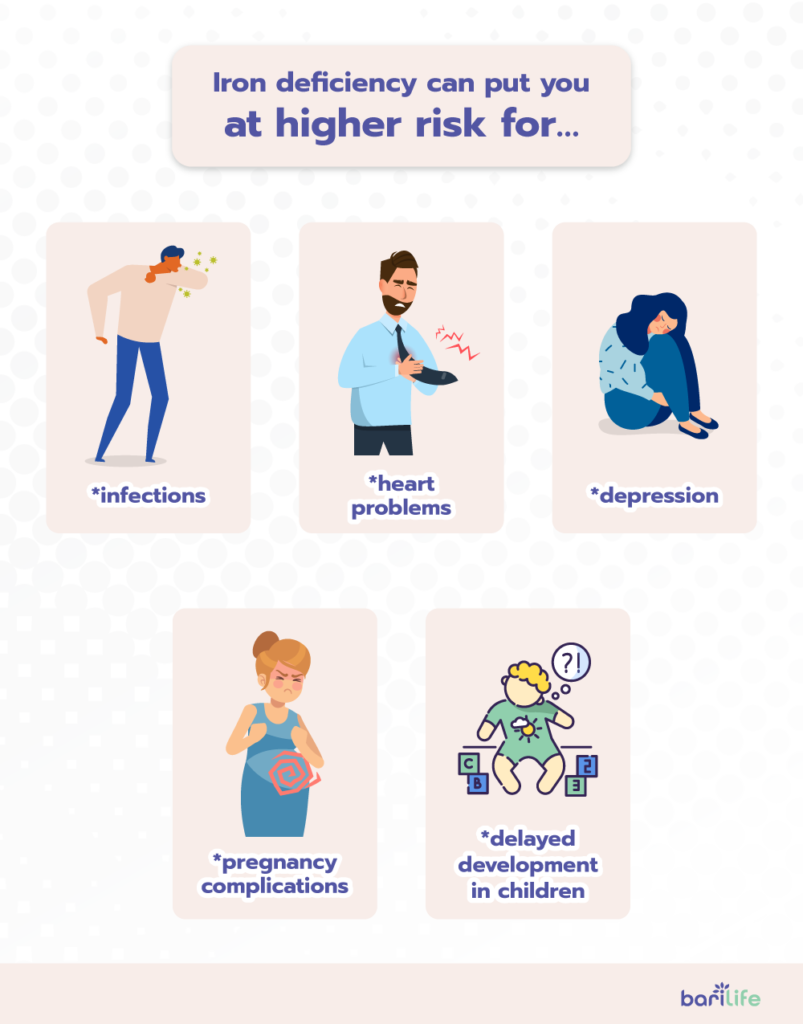
If left untreated, long-term iron deficiency can lead to death from heart or lung dysfunction.
This might beg the question: Are bariatric patients at a higher risk for iron deficiency? The answer is a resounding, YES. It is thought to be caused by a variety of factors including a decrease in mineral absorption from structural changes to the gastrointestinal tract, as well as less gastric acid produced, an important component of iron absorption in the body.
Iron deficiency is also more common in the bariatric surgery population because they may have more difficulty tolerating iron-rich foods, such as red meats. Some women may find that their menstrual cycles regulate, and therefore more blood is lost on a regular basis. Not to mention that up to 45% of obese people have some form of iron deficiency before even stepping foot in a surgeon’s office.
As mentioned above, blood loss is a leading cause of iron deficiency. Here is a list of the main causes of iron loss in the body:
- Sweat
- Blood loss from gastrointestinal bleeding
- Blood loss due to menstruation
- Hair and skin cell shedding
- Passing of intestinal cells
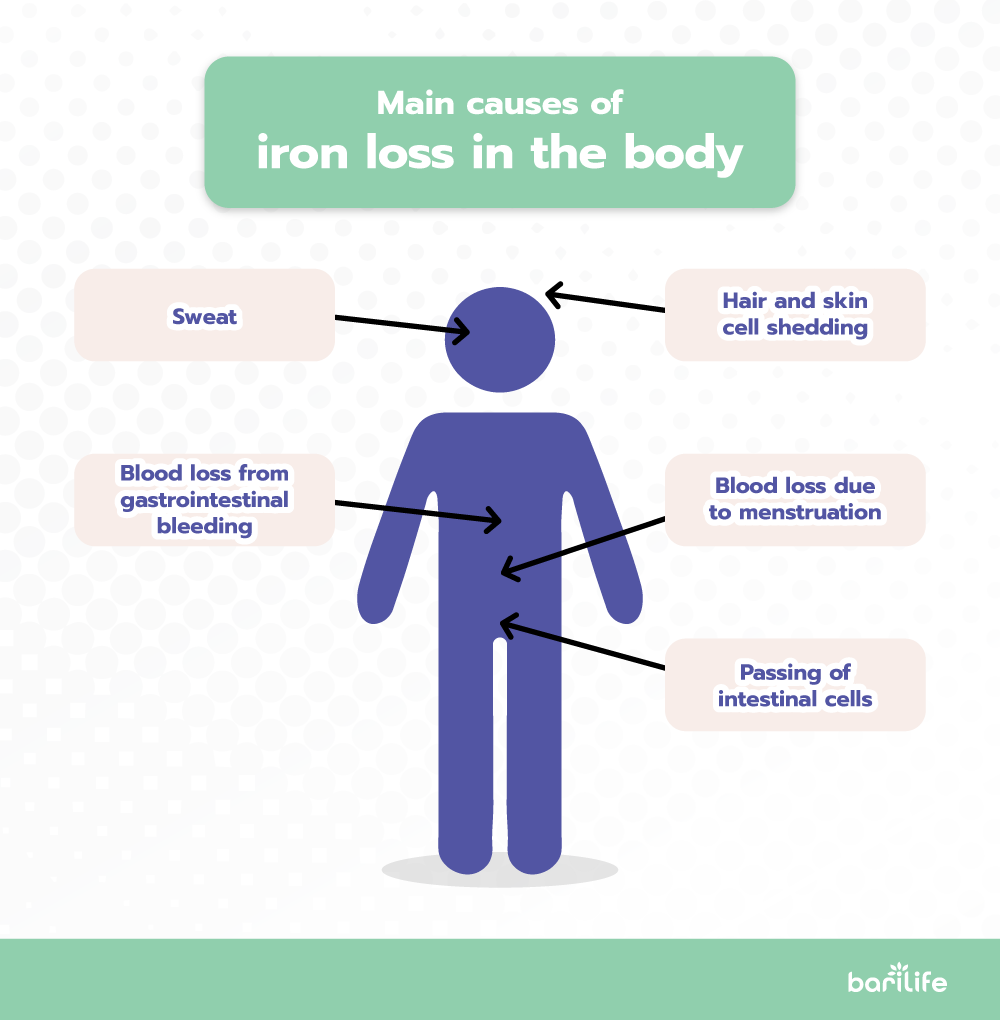
For this reason, it is important to ensure you are getting the right amount of iron for your needs. Your doctor can also check your iron levels with simple blood work to help avoid and/or treat iron deficiency. Eating a diet consisting of iron-rich foods and taking a supplement can help reduce your chances of becoming deficient in iron.
Bari Life vitamins has exactly what you need
Bari Life’s wide variety of vitamin and mineral supplements provide you with the nutritional support you need for recovery from bariatric surgery. Bari-Life’s Just One Multivitamin gives you 45mg of iron in each tablet. That meets ASMBS requirements for post-operative supplementation in one easy-to-chew tablet.
Bari Life’s Complete Bariatric Vitamin Powder makes taking vitamins more tolerable because you can simply mix the powder into water or juice. Two scoops of mouthwatering watermelon or lemonade flavored powder provide the recommended 45mg of iron needed.
Prefer the complete multivitamin in an easily swallowable tablet form? Bari-Life’s The Complete Vitamin Formula also meets ASMBS guidelines with 45mg of iron.
Already have a multivitamin that you like, but it’s missing iron? A stand-alone iron supplement can be ideal to round out your regimen. With the addition of Vitamin C for optimal absorption, Bari-Life’s Iron w/ C Supplement offers a whopping 54mg of iron. This is great for those needing targeted iron support.
Regardless of the form you choose to take the recommended amounts of iron after bariatric surgery, Bari Life has the perfect iron supplement for you!
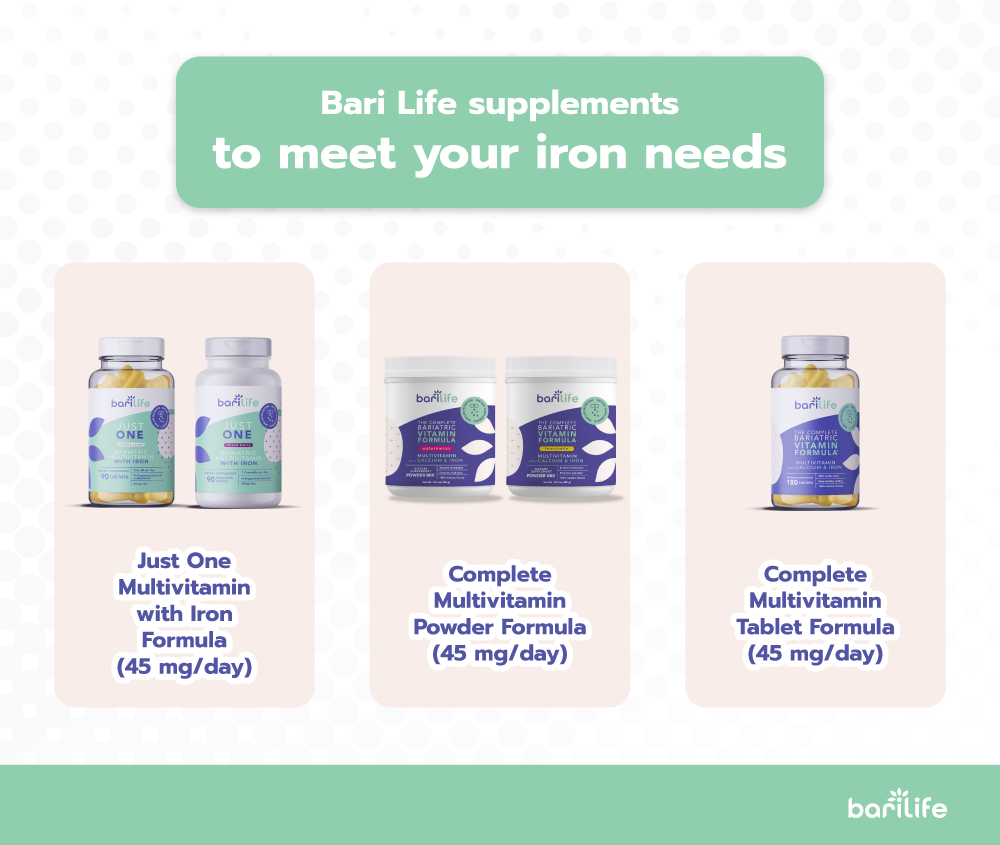




Do not drink anything carbonated,do not eat a lot of fried greasy food if you over eat you will vomit I had a roun y done gastric bypass not a sleeve